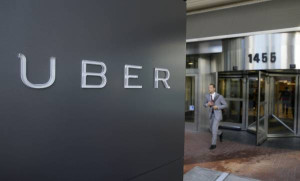ANSAmed
But shared transport is banned by law.
”Hello #Morocco, here we come”, was the tweet posted in October by Uber. And now the US budget car service that promises to revolutionize transport is ready to hit Morocco, starting from Casablanca.
The app that has sparked a controversy in Europe will enter the Maghreb market one step at a time, probably starting in October, as explained by Meryem Belqziz, the director general.
Initially, the service will be tested ”to adapt the product to the territory” and then ”the necessary adjustments for Casablanca’s market” will be made.
Although the marketing strategy remains aggressive, the approach has become more careful: Uber has so far not had an easy life. And in Morocco, where taxis are very picturesque, the sector is well-organized with major corporative interests. Taxi drivers need a license to work as well as agreed tariffs.
In addition, sharing transportation is banned by Moroccan law. Only to control prices, authorities have authorized taxis to take a second client on the street even if they are already transporting someone. In any case, taxis cannot drive more than three clients at a time. It will therefore be interesting to understand the legal stance that will be taken with Uber.
(ANSAmed)








